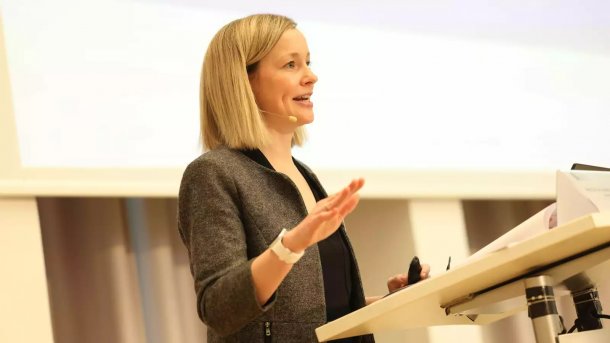Data Protection: Specht-Riemenschneider elected as BfDI
The Bundestag today elected Louisa Specht-Riemenschneider as the new German Federal Commissioner for Data Protection and Freedom of Information.

Louisa Specht-Riemenschneider
(Image: Volker Lannert / Universität Bonn)
A good four months after the official end of the term of office of the previous incumbent, Ulrich Kelber, the German Bundestag today elected Louisa Specht-Riemenschneider as the next Federal Commissioner for Data Protection and Freedom of Information. The lawyer and former professor of civil law at the Rheinische Friedrich-Wilhelms-Universität Bonn will thus become the second woman to hold the office of BfDI, following CDU politician Andrea Voßhoff, who led the supervisory authority from 2014 to 2019. Specht-Riemenschneider, who has no party affiliation, was announced in April after a long search as the only candidate of the "Ampel" party.
The federal cabinet officially nominated her last week, as formally planned. This marks the end of the long and agonizing search by the traffic light coalition for a new BfDI, who will also represent Germany on the European Data Protection Committee. Specht-Riemenschneider was selected by a search committee consisting of the deputy leader of the FDP parliamentary group, Konstantin Kuhle, and the deputy leader of the Green parliamentary group, Konstantin von Notz. After the candidate was announced and interviewed by the parliamentary groups in the Bundestag, the election was only considered a formality today. However, in some German federal states, candidates who were thought to be certain to be elected failed in the secret ballot, which is why all those involved did not want to anticipate this.
Videos by heise
Specht-Riemenschneider's term of office only begins with the appointment by the Federal President, until then, the current incumbent will remain in office in an executive capacity. If the appointment can only take place after the end of Ulrich Kelber's transitional term of office on July 7, the authority would be temporarily headed by the senior civil servant Jürgen Müller, albeit without the European powers of the BfDI. Specht-Riemenschneider's term of office will be five years by law, i.e. until 2029. An incumbent can be re-elected once, but - as the case of the previous incumbent showed - this is by no means guaranteed.
(nie)